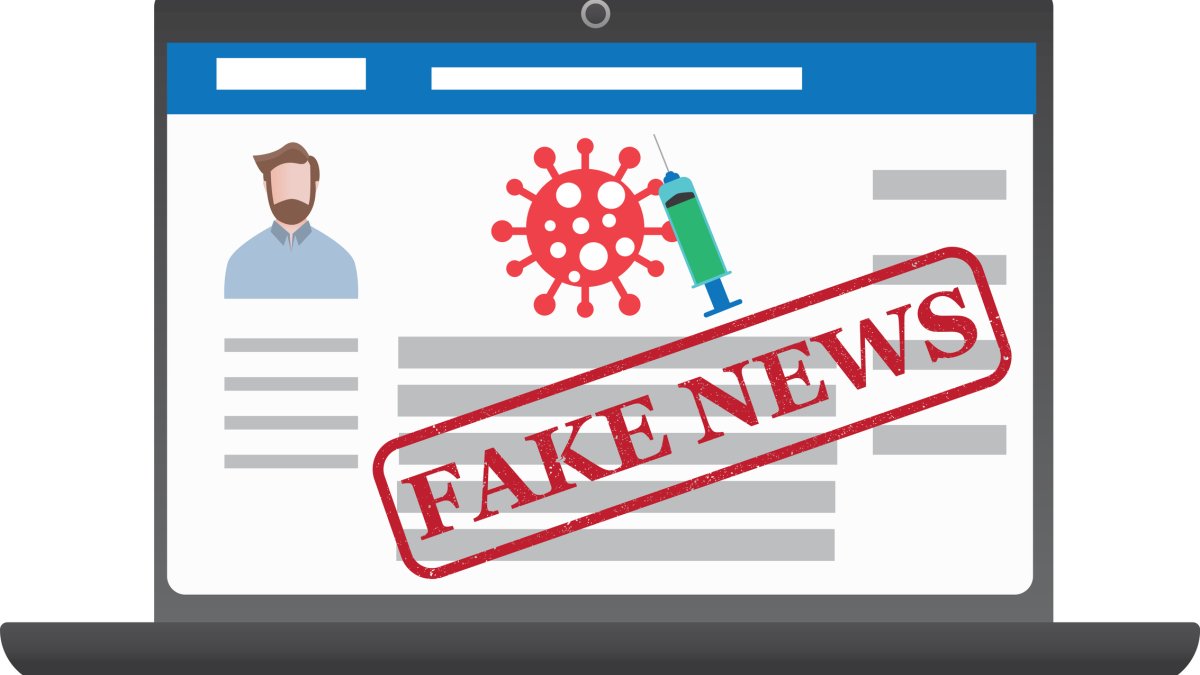Fighting fake news online: going beyond scientific slogans to connect with people emotionally
Empathy is a more potent weapon than facts when combatting fake news online, according to new research from the University of Surrey.

In a piece of research that looked into fake news and people who are sceptical of Covid-19 vaccines, the team from Surrey found that building rapport is a vital ingredient to winning over those who are distrustful of the benefits of vaccination and health advice.
Key policy recommendations outlined in the research paper are:
- Create partnerships to support social media activists with technical support, emotional support and support in creative, effective communications to encourage better online chats
- Governance frameworks that work with social media platforms to reduce misinformation.
Dr Itziar Castelló, project lead and Associate Professor at the University of Surrey, said: "Unfortunately, disinformation and fake news have come to shape critical scientific discourse over the past couple of years. The pandemic should raise alarms within the scientific community and beyond as to why it is critical for us to tackle fake news head-on.
"Our study makes two essential recommendations that can help to fight disinformation. Firstly, disinformation is about emotions and dealing with them means understanding and using emotions to counter that disinformation."
Focusing on three case studies in France, Italy and Ireland, the project considered how to successfully counter fake news online to re-establish and build trust in healthcare.
The study of Les Vaxxeuses in France found that only using facts to tackle misinformation didn't change the hearts and minds of anti-vaxxers or have any substantive effect on vaccine hesitancy.
The team also looked at the pro-vaccine case of IoVaccino - an Italian Facebook group with more than 100,000 members. The study showed that their focus on scientific facts left 'no room for doubt or alternative opinions'. This resulted in online exchanges that were dominated by confrontation.
The final case focused on the Health Service Executive (HSE) in Ireland in the Human Papilloma Virus (HPV) vaccination which was attacked by an anti-vaccination group called REGRET. The study argues that HSE, in collaboration with the patient advocate Laura Brennan*, was able to change the trend and increase the vaccination rates by more than 20 per cent in only two years. Laura Brennan's engagement combined a very personal and emotional story with a strong understanding of the facts.
The paper was one of seven commissioned by the British Academy for the About Covid-19 Recovery: Building Future Pandemic Preparedness and Understanding Citizen Engagement in the G7.
Professor Simon Goldhill FBA, the British Academy's Foreign Secretary, said: "This fascinating and timely research will help policymakers better understand how to tackle the scourge of misinformation surrounding the Covid vaccine and hopefully pave the way for greater uptake of the jab. Understanding this issue is an especially important challenge as autumn and winter threaten to bring more Covid cases across the northern hemisphere."
Note to Editors
- Dr Itziar Castello is available for interview, please contactmediarelations@surrey.ac.uk
- The British Academy is theUK's national academy for the humanities and social sciences.
- The researchers for this paper were Dr Itziar Castelló, Associate Professor at the University of Surrey, Dr Marie Joachim, Assistant Professor at the Essca School of Management, France; Dr Elanor Colleoni, Assistant Professor at the Universitá IULM, Italy. Dr Noreen O'Meara, senior lecturer at the University of Surrey; Lydia Milly Certa, PGR at the University of Surrey; Martin Harracá PGR at the University of Surrey; Dr Rocco Mazza, Postdoctoral Researcher at the University of Campania Luigi Vanvitelli, Italy; Dr Serena Brigidi Assistant Professor at the Universitat Rovira I Virgili, Spain and Professor Glenn Parry, Chair of Digital Transformation at the University of Surrey.
- Laura Brennan was diagnosed with cervical cancer in December 2016, in2017,she decided to speak up when she learned she could not be cured and started engaging online with hesitant users and anti-vaccination groups. She contacted Ireland'sHSE and worked with them to spearhead the fight against the growing distrust of a vaccine that had it been available earlier could have saved her life. Laura died in March2019but her testimony is still being relayed by the Irish government and WHO. In May 2019 Ireland's national television network broadcast a documentary on Laura's end of life 'This Is Me'.
Featured Academics
Media Contacts
External Communications and PR team
Phone: +44 (0)1483 684380 / 688914 / 684378
Email: mediarelations@surrey.ac.uk
Out of hours: +44 (0)7773 479911